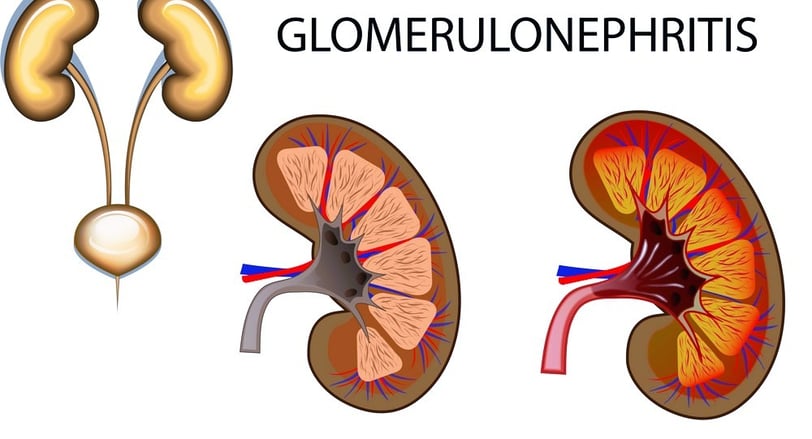Glomerulonephritis: Causes, Symptoms and Treatment
Discover everything about Glomerulonephritis: its causes, symptoms, and treatment options. Learn how to manage this kidney condition effectively for better health.


Glomerulonephritis is a medical condition that affects the kidneys, specifically the glomeruli - the tiny filters responsible for removing waste and excess fluid from the blood. This condition can be acute or chronic and can have various causes. In this article, we will explore the causes, symptoms, treatment options, and precautions for glomerulonephritis.
Causes of Glomerulonephritis
There are several factors that can contribute to the development of glomerulonephritis. Some common causes include:
1. Infections: Certain infections, such as streptococcal infections or viral infections like hepatitis B or C, can trigger an immune response that affects the glomeruli.
2. Autoimmune Diseases: Conditions like lupus, vasculitis, or IgA nephropathy can lead to glomerulonephritis as the immune system mistakenly attacks the glomeruli.
3. Medications: Some medications, including nonsteroidal anti-inflammatory drugs (NSAIDs), certain antibiotics, and diuretics, can cause kidney damage and lead to glomerulonephritis.
4. Genetic Predisposition: In some cases, glomerulonephritis can be hereditary, meaning it runs in families.
Symptoms of Glomerulonephritis
The symptoms of glomerulonephritis can vary depending on the severity and type of the condition. Some common symptoms include:
1. Blood in the urine (hematuria)
2. Foamy urine due to excess protein (proteinuria)
3. Swelling in the face, hand
4. High blood pressure
5. Fatigue and weakness
6. Decreased urine output
7. Joint pain
8. Fever and chills (in case of an infection-related glomerulonephritis) It is important to note that some individuals may not experience any symptoms in the early stages of glomerulonephritis, making regular check-ups and screenings crucial for early detection.
Treatment and Precautions
The treatment and management of glomerulonephritis depend on the underlying cause and the severity of the condition. Here are some common approaches:
1. Medications: Depending on the specific cause and symptoms, doctors may prescribe medications to control blood pressure, reduce inflammation, suppress the immune system, or treat underlying infections.
2. Dialysis: In severe cases where the kidneys are significantly damaged and unable to function properly, dialysis may be necessary to filter waste and excess fluid from the blood.
3. Lifestyle Modifications: Making certain lifestyle changes can help manage glomerulonephritis. These may include following a low-sodium diet, limiting protein intake, quitting smoking, and exercising regularly.
4. Regular Monitoring: Individuals with glomerulonephritis should undergo regular check-ups to monitor kidney function, blood pressure, and overall health. This allows for early detection of any complications and prompt intervention.
5. Precautions: To prevent further damage to the kidneys and manage the condition effectively, it is important to take certain precautions. These include staying hydrated, avoiding excessive use of over-the-counter pain medications, managing underlying health conditions, and following the healthcare provider's instructions regarding medication use and lifestyle modifications.
In conclusion, glomerulonephritis is a kidney condition that can have various causes. Recognizing the symptoms, seeking timely medical intervention, and following the recommended treatment plan and precautions can help manage the condition and prevent further complications. If you suspect you may have glomerulonephritis or are experiencing any related symptoms, consult a healthcare professional for an accurate diagnosis and appropriate treatment.
